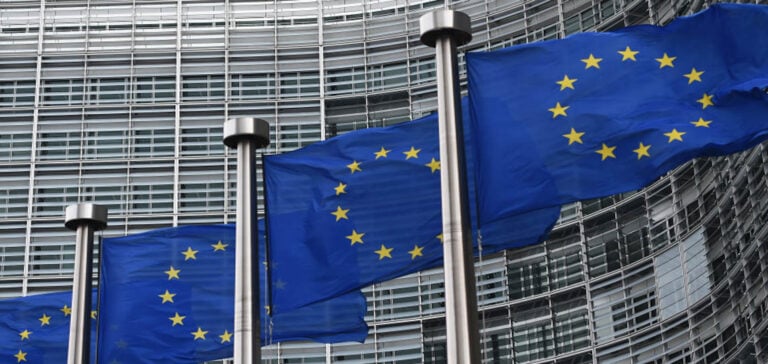The reform of the European Electricity Market is the subject of intense discussion. Last week, after a meeting with German Chancellor Olaf Scholz, French President Emmanuel Macron hailed the two countries’ determination to reach an agreement “by the end of the month”. Intense” bilateral discussions have since taken place, but a compromise remains uncertain.
The Spanish proposal: a major bone of contention
A new proposal from the Spanish presidency of the EU completely removes the controversial issue of support for existing nuclear power plants from the text. However, this is unacceptable to Berlin, which wants to regulate the scheme at European level to avoid distortions of competitiveness. “The Spanish proposal attempts to solve a major problem for the internal market by ignoring it. Which doesn’t make it go away,” commented German Economics Minister Robert Habeck.
Financial and energy issues
After last year’s surge in electricity prices, the reform aims to lower bills for households and businesses. This is thanks to long-term contracts that smooth out the impact of volatile gas prices. The aim is also to ensure greater predictability for investors: any public support for new investment in decarbonized power generation would be provided via “contracts for difference” (CFDs) at a price guaranteed by the State.
Under this mechanism, the electricity producer must pay the additional income generated back to the state, which can then redistribute it. If the wholesale market rate is lower than the price, the State pays compensation. However, the initial proposal extended these CFDs to investments aimed at extending the life of existing nuclear power plants. A cause for alarm for Berlin: Germany, which has phased out nuclear power, fears unfair competition from French electricity, made more competitive thanks to massive public support. On the other hand, the subject is crucial for France, anxious to finance the refurbishment of its ageing nuclear fleet and maintain low prices, a major asset for its manufacturers.
European competitiveness and environmental challenges
This debate comes at a time when European manufacturers are worried about their competitiveness, between soaring energy prices and massive subsidies for green industries in the United States. In a counter-proposal presented on Tuesday, Robert Habeck defended the imposition of European criteria on all CFDs applied to existing power plants. In fact, it ensures that the revenues generated do not distort the conditions of competition when they are redistributed to manufacturers, under strict supervision from Brussels.
France intends to benefit from its energy choices, at a time when Germany is suffering both from the loss of Russian gas imports, on which it had become dependent, and from the abandonment of nuclear power, which has forced it to reintroduce coal. “There are questions about the risk of distortion of competition. The French Minister for Energy Transition, Agnès Pannier-Runacher, is also astonished. The cost of historic nuclear power is in the same ballpark as the cost of renewable wind and photovoltaic installations.
Madrid also intends to secure the approval of Paris and Berlin, provided that the text is validated by a qualified majority of states. Hanging on the two powers’ compromise, some countries did not hide their annoyance. Belgian minister Tinne van der Straeten deplores the fact that the EU is not limited to France and Germany.
Capacity mechanisms” under debate
Another topic of debate was “capacity mechanisms”. They enable governments to pay for unused power plant capacity to ensure that they remain in operation. In this way, they avoid future electricity shortages. A number of countries want to be exempted from the planned ecological constraints. Poland, for example, is keen to apply this tool to its coal-fired power plants.
Why should any of this matter to us in financial and energy terms? These negotiations have a direct impact on the competitiveness of European companies and on electricity costs for households. Another example is the transition to more sustainable energy sources. Striking a balance between supporting nuclear power and promoting renewable energies is crucial to Europe’s future. The outcome of these discussions will have an impact on the electricity market and investment in low-carbon energy infrastructure. This has a major impact on the economy and the environment.






















